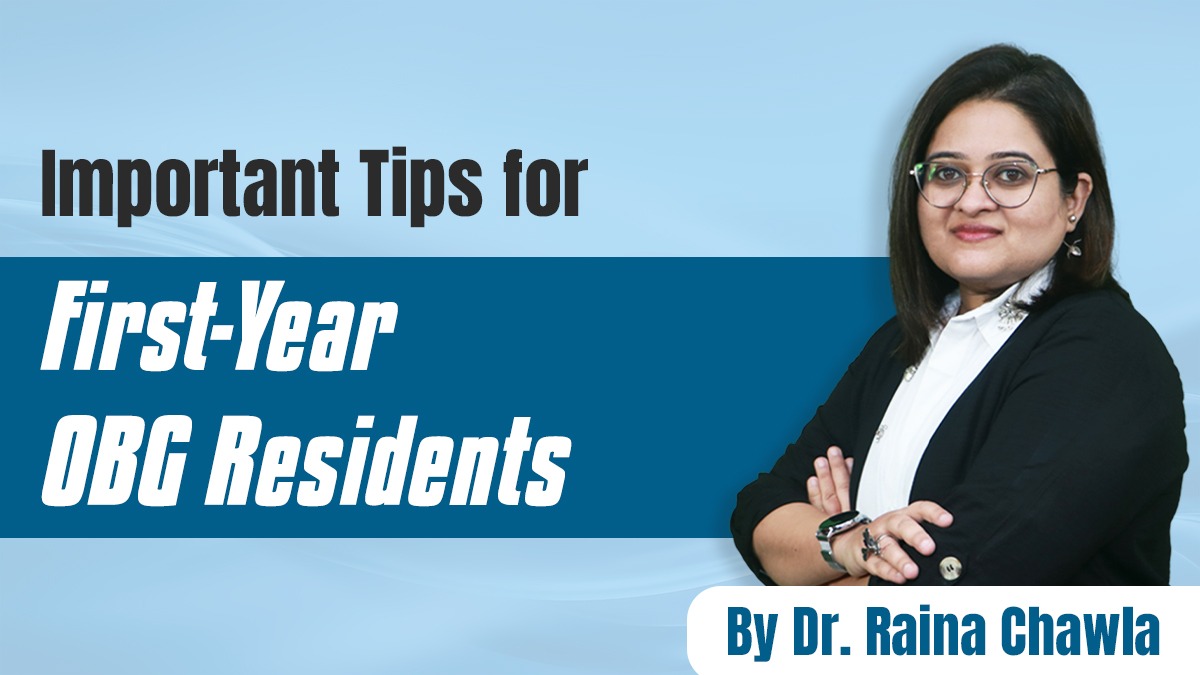Estimated reading time: 3 minutes
Starting your OBG residency is both exhilarating and challenging. You are venturing into the world of limitless learning, direct experiences, and self-grooming. Here are a few key tips to help you sail through your residency with ease and efficacy.
1. Create Your Study Time Table
- Your residency will be filled with clinical responsibilities, which means that effective time management will be helpful. Develop a monthly schedule according to your postings—whether you are in the ward, OPD, labor room, or community camps.
- Set aside at least 30 minutes to 2 hours of study time each day, depending on your workload. If you are too busy, use any spare moments during duty hours to refresh your basics. Or, use pre-formatted study plans available on our app to maximize your learning.
2. Create a Daily To-Do List
- Start each morning by planning your day, considering both your clinical responsibilities and study goals. Keep your schedule flexible—some days will be overwhelming, and that’s okay.
- Aim to complete at least 70-80% of your planned study tasks. Breaking topics into short, manageable sessions (30-60 minutes) makes retention easier. For instance, dedicate one day to antenatal history, another to examination techniques, and another to procedural videos.
Also Watch: https://www.youtube.com/watch?v=eciTAVNVC88
3. Learn from Everybody Around You
- Your seniors need not always be nice to you, but they have great expertise. Take time to learn their best practices and emulate them.
- Build good friendships with colleagues working in radiology, pediatrics, pathology, and other branches. Having a good network makes your residency ride much easier. Being nice and friendly guarantees good learning conditions and builds professional ties for life.
4. Dress Professionally
- Dressing up every day, even in a government hospital environment, can brighten your mood and the moods of those around you.
- Spend a few minutes dressing up—dress in clean, well-fitting clothes, and keep yourself tidy. A well-groomed, confident attitude can improve your interactions with patients and coworkers alike.
5. Stay Positive and Celebrate Small Wins
- Residency is difficult, but positivity eases the way. Value small triumphs—your initial delivery, your initial skin suturing, or your first solo procedure.
- Life will continuously pose challenges, but developing a resilient attitude from the start will render subsequent barriers more manageable to pass.
6. Acquire Clinical Decision-Making Skills
- Apart from practical skills, knowing when to act and how to proceed is important. Keep a small notebook and record treatment plans for every patient. Subsequently, compare your records with real-life clinical decisions of your consultants.
- This practice improves your judgment and readies you for solo practice.
7. Demonstrate Enthusiasm and Commitment
- Curiosity and love for learning do not go unnoticed. Residents who demonstrate enthusiasm are noticed and valued by faculty members.
- Stay after class to watch unusual cases, engage actively in class discussions, and volunteer whenever the opportunity arises. Your passion has the ability to lead to improved opportunities and working exposure.
8. Balance Work and Self-Care
- Residency is challenging, but self-care is crucial. Make time to unwind, do things you love, and take care of your mental health.
- A rested and contented doctor is a better clinician.
Conclusion:
Your OBG residency is a once-in-a-lifetime experience with learning, setbacks, and growth. Approach it as a game of snakes and ladders—there will be setbacks, but determination will take you to your destination. Prioritize intelligent studying, active engagement, and a positive attitude. Enjoy the ascent, appreciate the journey, and above all, never stop learning!


